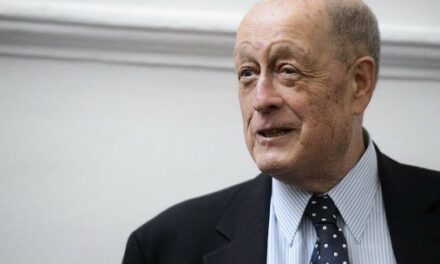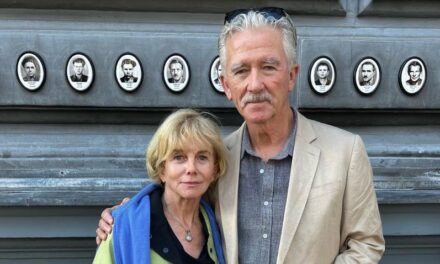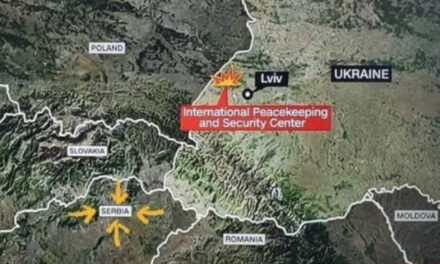The International Olympic Committee (IOC) revised its previous position and changed Rule 50, which many consider to be a restriction on freedom of expression, a few weeks before the start of the Games. At the Tokyo Olympics, competitors are free to kneel if they wish, although this will no longer be allowed during the results announcement. The IOC Executive Committee has yet to approve the proposal. If this happens, after football, the most watched sports event in the world can also be a topic of who and how expresses their political opinion.
Until now, the IOC Olympic Charter has strictly prohibited protests related to political, religious or social issues at the international sporting event.
Up until now, there have been reports that kneeling or raising a fist would result in instant punishment in Tokyo, but that could change.
At the end of June, the amendment of Article 50 of the Olympic Charter was put on the agenda. The rule was not abolished, but it was relaxed, although the executive body still has to accept this.
insidethegames.biz , which deals with Olympic sports recently .
Competitors would still not be allowed to demonstrate at the results announcement, on the podium or in the Olympic village, but this is also a significant change compared to current practice.
Athletes' expressions of opinion must be in line with the Olympic value and cannot be directed against specific persons, countries, or organizations and cannot be disruptive or disorderly. According to the IOC, these rules serve to preserve the neutrality of sport and the Olympics.
"At the Olympic Games, the emphasis should remain on athlete performance, sport and international unity and harmony," they added.
Those who break the rules can expect disciplinary punishments, but no specifics were disclosed when asked by ABC News.
Even before the amendment, the United States Olympic and Paralympic Committee said it would not penalize its athletes for expressing political opinions at the 32nd Olympic Games, which begin on July 23.
The World Federation of Players, which represents 85,000 professional athletes and protects the interests of elite athletes, also indicated that it will not allow outdated sports rules to override basic human rights. In their opinion, Article 50 amounts to censorship of the rights of athletes.
Political manifestations at the Olympics
In the history of the modern Olympics, there have been repeated cases when an athlete took a stand on a national, religious, ethnic or political issue.
Probably the first athlete to fit into this line is Ireland's Peter O'Connor. At the 1906 Athens Games, Irish competitors still competed in British colors, so Ireland only became independent in 1921. Peter O'Connor finished second in the long jump.
They also played the national anthem in his honor. But when the flag was raised, the self-confident Irish athlete jumped in and swapped the Union Jack for a previously smuggled Irish flag as his teammates defended him.
One of the most prominent political actions took place at the 1968 Games in Mexico. At the award ceremony of the 200-meter sprint, the two African-American medalists John Carlos and Tommie Smith, holding up their black leather-gloved hands, listen to the American national anthem with their bare feet, thus expressing their solidarity with the black civil rights movement. The Carloses were then sent home from the Olympic Village.
It also happened at the 1968 Games that the famous Czechoslovak gymnast Vera Cáslavská turned her head during the Soviet anthem during the medal ceremony and stared at the ground in protest against the Soviet occupation of her country.
After the Olympics, he was no longer allowed to travel abroad and was forced to retire. The athlete critical of the system was only accepted back into gymnastics during the regime change.
Sports and politics were almost completely intertwined in 1980 and 1984. The United States announced a boycott after the Soviet Union's invasion of Afghanistan in 1979, in response to which the socialist countries and the Soviet Union stayed away from the Los Angeles Olympics four years later.
At the 2004 Athens Olympics, the then Iranian world champion Miresemaeili refused to fight against the Israeli judoka Ehud Vaks.
"Although I trained for months and was in good shape, I refused to fight against my Israeli opponent because I sympathized with the suffering of the Palestinian people," said the Iranian athlete, who received a hero's welcome upon his return home.
At the 2012 London Games, light heavyweight boxer Damien Hooper arrived in the ring for his first match wearing a top with an Aboriginal flag printed on it. The IOC and the Australian Olympic Committee are also stumped, as according to the rules, competitors can only wear the official uniform of their country. Hooper later apologized.
Who should we look out for in Tokyo?
During the US Olympic selection competitions, athlete Gwen Berry regularly "turned away" during the results announcements when the US national anthem was played.
Apostrophizing himself as an "activist athlete", Berry has repeatedly demonstrated against the "systemic racism" afflicting America with this pose, which seems phlegmatic to outsiders.
"I never said I hated the country," the 32-year-old hammer thrower said in an interview. "All I said was that I respected my people enough not to admit something that was disrespectful to them."
White House spokeswoman Jen Psaki assured the athlete of her support on behalf of President Joe Biden. "We respect people's constitutional right to peaceful protest," he said.
Not everyone agrees with this. Several Republican politicians criticized the athlete. Dan Crenshaw of Texas says there is no need for more activist athletes. "The Olympic team is all about representing the United States of America as one," Crenshaw said.
Author: hirado.hu
The cover photo is an illustration. MTI/Tibor Illyés












